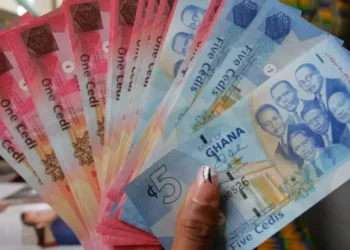The Securities and Exchange Commission (SEC) and the United Nations Capital Development Fund (UNCDF) have introduced comprehensive guidelines for equity and investment-based crowdfunding.
This initiative aims to significantly bolster the growth of Micro, Small, and Medium Enterprises (MSMEs) and startups by providing an alternative financing mechanism that ensures investor protection and offers a robust regulatory framework.
The development of these guidelines was a collaborative endeavor involving extensive consultations with key stakeholders and technical support from Lelapa African FinTech Advisory. Feedback from various sector players was also instrumental in shaping the final document. This collaborative approach ensured that the guidelines are comprehensive, addressing the critical gaps that have previously hindered the growth of the entrepreneurial community in Ghana.
Unlocking Crowdfunding Potential
Crowdfunding, as a financing model, has remained underutilized in Ghana primarily due to the absence of a clear regulatory framework. The new guidelines aim to unlock this potential by providing a structured and transparent environment for crowdfunding to flourish. This initiative is not just about opening new avenues for capital raising; it is about democratizing finance and integrating crowdfunding into the broader financial ecosystem of Ghana.
Rev. Daniel Ogbamey Tetteh, the Director-General of the SEC, highlighted the significance of this development during the launch event. “This marks a significant step towards democratizing finance and empowering our Micro, Small, and Medium Enterprises (MSMEs) and startups,” he stated. By offering an alternative avenue for capital raising, these guidelines are set to foster innovation and entrepreneurship, injecting vitality into the real sector of the economy.
The introduction of crowdfunding guidelines is a strategic move aligned with the National Financial Inclusion and Development Strategy. By making capital markets more accessible, the guidelines aim to stimulate job creation, enhance productivity, and contribute to GDP growth. Rev. Tetteh emphasized that this initiative is a key component of the Capital Market Master Plan (CMMP), which aspires to create a more robust and inclusive capital market in Ghana.
Bridging the Financing Gap
The financing gap faced by MSMEs and startups has been a significant barrier to their growth. Crowdfunding serves as a bridge, connecting retail investors with the real sector and mobilizing domestic resources for economic growth. The guidelines are designed to provide a clear roadmap for businesses to access funding and for investors to participate in promising ventures. By establishing clear rules and standards, the SEC aims to create a secure and transparent environment for crowdfunding, ensuring both investor protection and the flourishing of the crowdfunding ecosystem.
Ghana has the potential to emerge as a leading hub for crowdfunding in Africa. The new guidelines envision a vibrant ecosystem where entrepreneurs can easily access the capital they need to grow, investors can confidently support innovative projects, and the economy can benefit from the collective wisdom and resources of the crowd.
Charles Abani, the UN Resident Coordinator in Ghana, noted that the country remains a pioneer in financial innovation within the region and continent. He stressed that crowdfunding has played a pivotal role in other countries by connecting individuals with investment possibilities and addressing financing gaps.
Ghana’s estimated finance gap stands at $43 billion annually until 2030, and innovative mechanisms like crowdfunding are essential to bridge this gap and drive economic growth, social inclusion, and environmental sustainability.
The UNCDF, through initiatives like the GrEEn Project funded by the European Union Trust Fund for Africa-EUTF, has been at the forefront of pioneering crowdfunding in Ghana. Arianna Gasparri, Technical Lead at UNCDF, expressed satisfaction in contributing to this innovative financing channel. The guidelines are expected to boost innovation and safeguard investors by requiring crowdfunding platforms to provide clear and comprehensive information about investment risks and potential returns.
Furthermore, the guidelines promote collaboration between crowdfunding platforms, banks, microfinance institutions, and investment funds to create a seamless financial ecosystem. This collaborative effort will enhance access to finance, promote financial inclusion, and foster sustainable finance practices in Ghana.
READ ALSO: Bawah Mogtari Vaunts Mahama’s Vision to Transform Ghana’s Agriculture


















